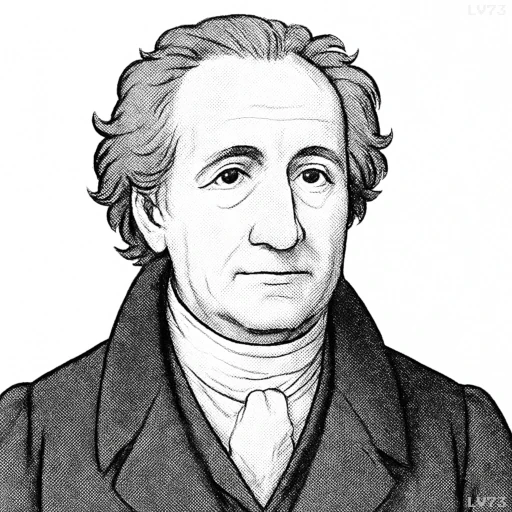“Piety is not a goal but a means to attain through the purest peace of mind the highest culture.”

- August 28, 1749 – March 22, 1832
- German
- Poet, playwright, novelist, philosopher, politician
table of contents
Quote
“Piety is not a goal but a means to attain through the purest peace of mind the highest culture.”
Explanation
Goethe suggests that piety, or devoutness, is not an end in itself but a tool or pathway that helps individuals achieve a state of inner peace and balance, which ultimately leads to the development of the highest culture. In this context, “culture” refers not just to intellectual or artistic accomplishments but to the moral and spiritual refinement of an individual. True cultivation of the self requires inner peace and harmony, and piety—through its focus on humility, spiritual reflection, and ethical behavior—serves as a means of attaining this tranquility and, in turn, leading to a higher form of personal and societal culture.
Historically, this idea reflects Goethe’s belief in the importance of spirituality and personal development as part of an individual’s broader journey toward self-improvement. In his time, the concept of culture included both intellectual and moral dimensions, and Goethe believed that piety, when practiced with sincerity and inner peace, could be a foundational part of personal growth and achieving a higher level of humanity.
In modern contexts, this idea is relevant when considering the relationship between spirituality and personal well-being. For example, many modern practices like mindfulness or meditation encourage individuals to cultivate inner peace, which in turn supports mental clarity, ethical behavior, and personal development. Whether through religious practice, self-discipline, or community service, individuals who seek peace of mind often find themselves growing in wisdom, compassion, and empathy, all of which contribute to a more refined and cultured approach to life.
Goethe’s words remind us that spiritual practices or ethical behavior, when pursued with the right intentions, can guide us toward greater inner peace, which serves as the foundation for achieving the highest form of culture—both personally and within society.
Would you like to share your impressions or related stories about this quote in the comments section?




